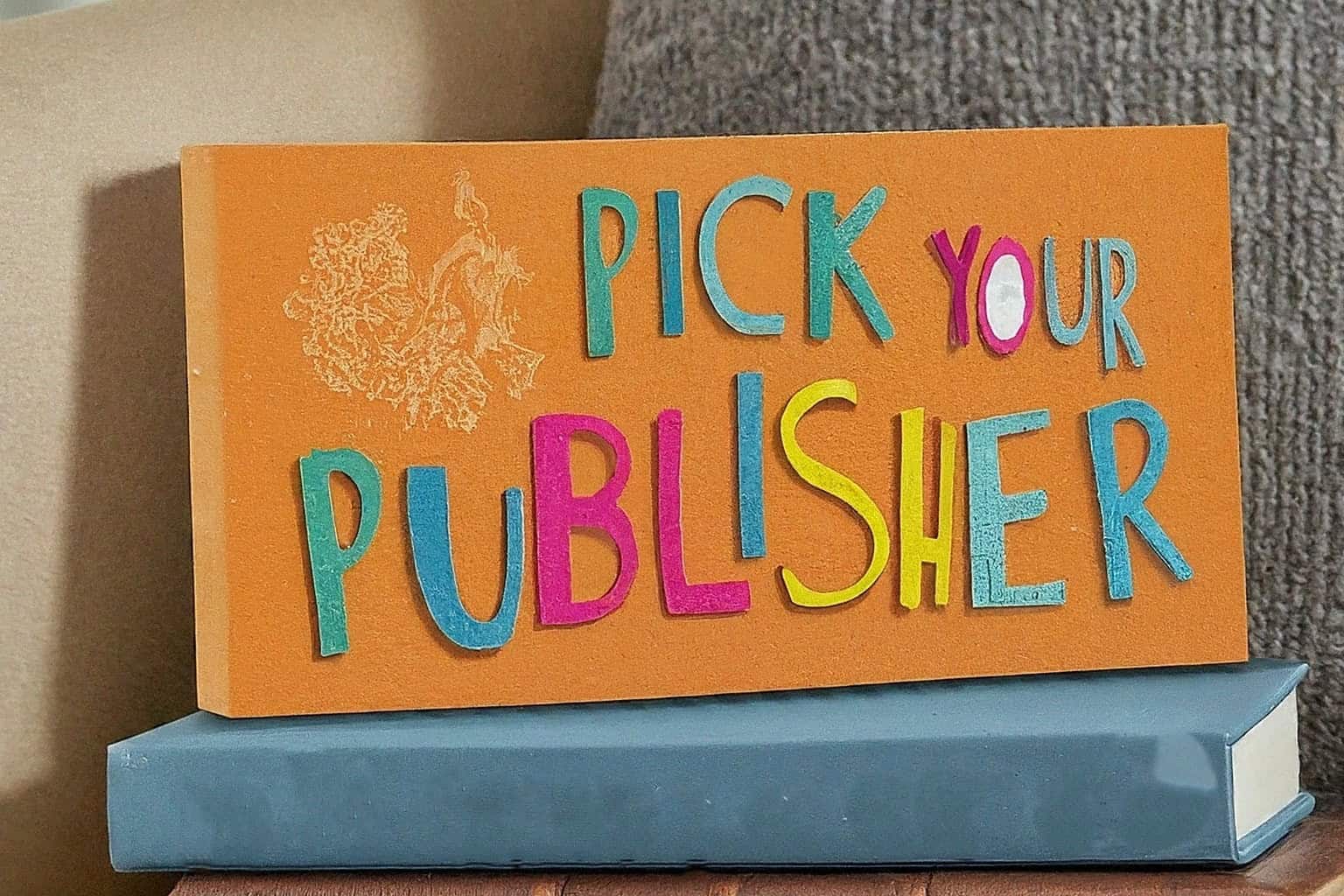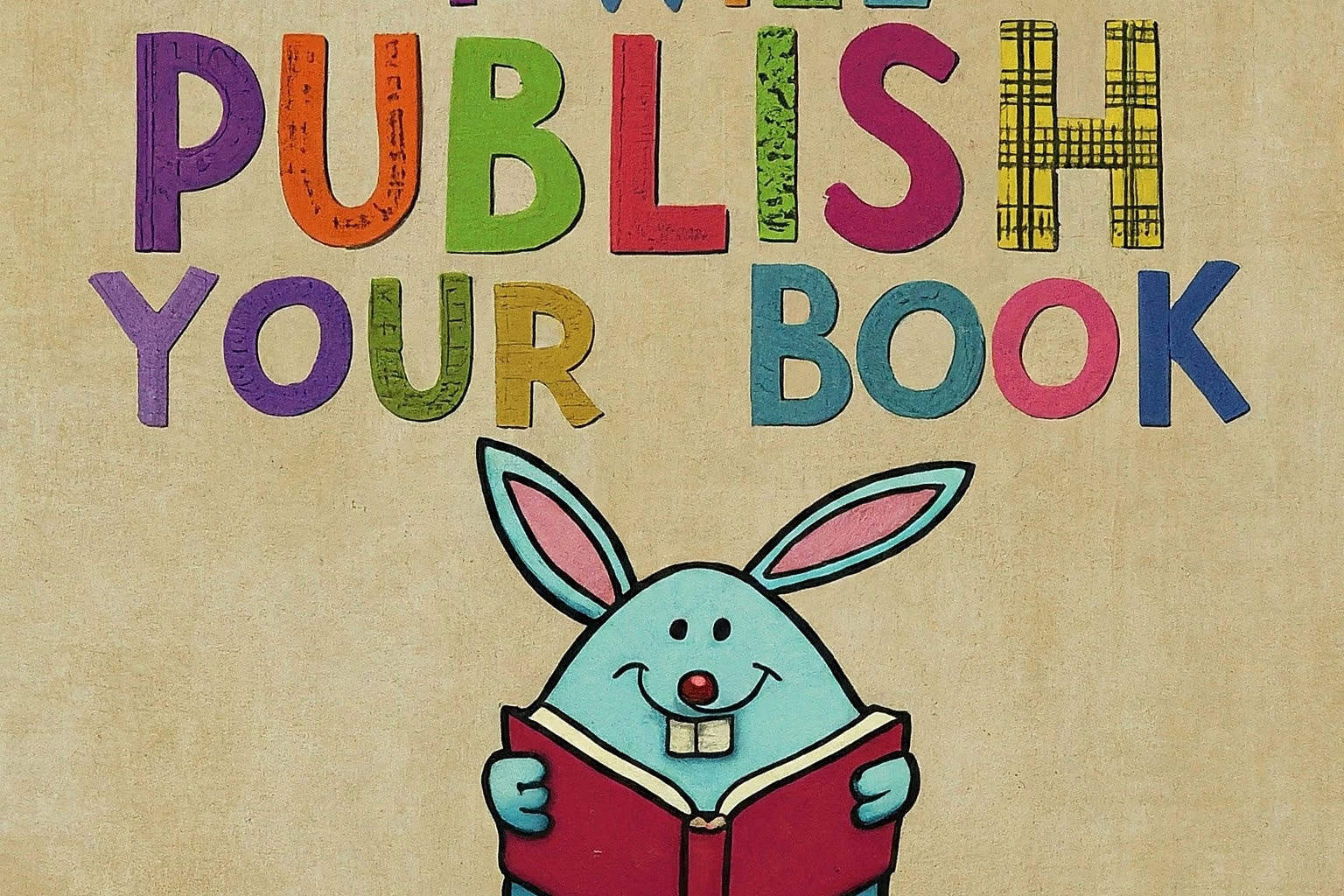The path to publication starts with researching publishers and submitting your pitch materials, such as a query letter and book proposal for nonfiction books.
You’ll pitch your book concept to acquisition editors, who may request your full manuscript. If a publisher is interested, they will make you an offer and negotiate a book contract. There are many steps along the way, but the rewards of holding your published book make it all worthwhile.
This guide will walk through the key steps in the publishing process, from researching publishers to evaluating offers. While publication requires hard work and perseverance, you can make it happen by following these steps.
Decide What You Want in a Publisher

When starting your search for a publisher, first decide what you want and expect from a publisher. This will help guide your research process.
The three main options for publishing a book are major publishers, independent publishers, and self-publishing.
Major Publishers
Major publishers are large, well-known publishing houses like Penguin Random House, HarperCollins, Macmillan, Simon & Schuster, and Hachette Book Group. The advantage of major publishers is their wide distribution, big marketing budgets, and prestige.
However, they receive thousands of submissions and only publish a small percentage of books submitted. You will likely need a literary agent to get your book considered.
Independent publishers
These are smaller presses that publish anything from a few titles to a few hundred titles per year. They are more accessible than major publishers and open to unagented submissions. Independent publishers offer more personalized attention and service. However, their distribution reach is smaller.
Self-publishing
Self-publishing means you publish and market the book yourself. This gives you full control and creative freedom. Self-publishing can be done through providers like Amazon Kindle Direct Publishing or IngramSpark. The drawback is that you have to do all the work of editing, design, distribution, and marketing yourself. However, self-published books can gain success through word-of-mouth.
Research Potential Publishers

When looking for a publisher, it’s important to find ones that are a good fit for your book. There are several places you can look to find listings of publishers to research:
- Literary Market Place – This annual directory provides listings of publishers by genre and includes details like submission guidelines, contact names, and more. It’s available online by subscription or in print.
- Writer’s Market – Similar to Literary Market Place, this directory is geared towards writers and provides publisher listings across genres. They have an online database you can search as well as print editions.
- Publishers Weekly – This is a weekly trade news magazine for the publishing industry. Their website provides listings of publishers by genre and location.
- Publisher’s Association – Most countries have a publisher’s association; you can browse for listings of publishers in your area. For example, the Association of American Publishers has a membership directory.
- Genre Organizations – If you write in a specific genre like romance, mystery, or science fiction, look for associations for that genre that may list relevant publishers. For example, the Science Fiction and Fantasy Writers of America.
- Online Searches – Search online for terms like “publishers of [your genre]” to find relevant listings. You can also search directly on Amazon for publishers in your category.
The key is to make a big list of potential publishers first – then, you can narrow it down by researching details like size, genres published, submission guidelines, and recent releases to find the best matches.
Reach out to any connections you have in the publishing industry for recommendations as well. Cast a wide net early in the process.
Understand Submission Guidelines
Before submitting to a publisher, it’s imperative to understand their submission guidelines. These provide critical details on exactly what and how to submit your manuscript. Pay close attention to the following:
- Format – Most publishers want electronic submissions these days, usually as a Microsoft Word doc. Some may still accept paper submissions. Know the precise file format, font, spacing, etc., they want.
- Length – Publishers specify maximum and/or minimum word counts or page lengths. For fiction, they may want complete manuscripts. For nonfiction, often just a proposal.
- Genre specifications – If you’ve written a mystery novel, don’t submit it to a publisher that focuses on science fiction. Make sure your genre is a good fit. Some accept multiple genres, while others specialize, therefore, make sure you know their preferences.
Following submission guidelines shows publishers you can follow directions and establishes your credibility. It also helps ensure your submission makes it to the right editor’s desk instead of being rejected on a technicality. Precision matters, so review those guidelines closely.
Write a Query Letter
The query letter is one of the most important parts of finding a publisher. Its purpose is to hook the interest of an editor or agent and convince them to request your full manuscript.
The query should be 1 page, 3-4 paragraphs, and include:
- A hook – An interesting statement about your book to grab their attention
- A summary – 1-2 paragraphs briefly explaining your book’s genre, plot, and any unique angles
- Your credentials – Brief background showing your expertise in this subject/genre
- Market potential – How your book fits a need in the market
- Polite request – Ask if they’d be interested in seeing your full manuscript
Some tips:
- Research the publisher – Target agents interested in your genre
- Be concise but compelling – Share key details to make them want more
- Follow guidelines – Adhere to their specified format
- Be confident but humble – Avoid gimmicks but convey your passion
- Proofread extensively – Fix all errors – this is your one chance to impress
Write a Book Proposal
A book proposal is essentially a business plan for your book that you send to publishers to pitch your idea. A strong proposal not only describes what the book will cover, but sells the publisher on the book’s market potential.
It’s your opportunity to prove that your book is a worthwhile investment. Therefore, take the time to polish your proposal and highlight the unique value you bring. This is the document that can launch your publishing dreams.
Key elements to focus on when writing your book proposal are as follows:
- Overview – This briefly summarizes your book’s subject matter, why it’s important, and any unique angles or approaches you’re taking. It should hook the publisher right away.
- Chapter Outline – Provide a short paragraph on each chapter to map out the book’s structure and content flow. This gives the publisher a clear picture of your vision.
- Target Audience – Describe who your readers are, including demographics and psychographics. Why will they be drawn to your book?
- Competitive Titles – Analyze how your book differs from others on the shelves. Show why there’s a need for your book.
- Marketing Plan – Highlight your existing platform and promotion ideas. Prove there’s an audience eager for your book.
- Author Bio – Summarize your credentials and platform that qualify you to write this book.
- Sample Chapters – Include 1-2 chapters that demonstrate your writing skills and ability to deliver on the proposal.
Submit to Publishers
Once you’ve identified publishers that seem like a good fit for your book, it’s time to start submitting. Make sure to closely follow each publisher’s submission guidelines. Most will want either a query letter, a proposal, or the full manuscript. Therefore:
- Carefully read the guidelines and only send what is requested. Following instructions shows you can be a professional partner.
- Keep detailed records of where and when you submit. Use a spreadsheet to track submissions so you don’t accidentally send to the same publisher twice.
- Only submit to one publisher at a time if exclusivity is required. Some want exclusive rights for a set period during consideration.
- Be patient, as response times can vary. Larger publishers may take 3-6 months and smaller ones tend to be faster. Follow up if you haven’t heard after the stated response time.
- Politely inform other publishers if you receive an offer to remove your submission from their consideration queue.
- If rejected, carefully review any feedback that is provided before resubmitting elsewhere. Make suggested revisions first, if possible.
- Don’t get discouraged by rejections. It’s often not a reflection on your work. Publishers reject many proposals that later go on to be successful books. Persistence is key.
- Manage your submissions carefully and systematically to give yourself the best chance of getting a publishing contract.
Evaluate an Offer
When you receive an offer from a publisher, it’s important to thoroughly evaluate it before signing anything. Here are some key things to look for:
Contract Terms
- Carefully read the entire contract. Make sure you understand all the terms and conditions.
- Pay attention to the length of the contract. Most are for the full term of copyright (life of the author plus 70 years).
- Look at provisions for who owns the rights and how revenues will be split. The contract should detail who gets what percentage of royalties.
- See if there are any clauses that limit your ability to publish future works. You want to maintain as much creative freedom as possible.
Rights
- Determine what rights the publisher requires. Most want exclusive worldwide rights for the full term of copyright.
- Try to retain as many rights as you can, like film, foreign translations, etc. These additional rights can provide revenue streams.
- Only grant rights for a limited time period if possible. This allows you to eventually reclaim rights to your work.
Royalties
- Royalty rates vary but are often around 10% for hardcover, 7.5% for trade paperback, and 25% for ebooks. Know the industry standards.
- Make sure royalties are paid twice a year or more. You want payment as frequently as possible.
- Check if royalties include provisions for escalation over time. Aim for royalties to increase as sales increase.
- Understand how returns, discounts, and warehousing costs could reduce your royalties. Account for these deductions.
Get Support Throughout

Writing a book and getting it published can be an intimidating process. It helps to have support along the way. Here are some options for getting support throughout the publishing process:
Work with a Literary Agent
Many authors choose to work with a literary agent. An agent helps you find the right publisher for your book and negotiates contracts on your behalf. They have connections in the publishing industry and know which editors are looking for certain types of books. An experienced agent can provide valuable guidance as you navigate the publishing process.
The key is finding the right agent for your work. Look for an agent who represents books similar to yours and has successfully sold books to publishers. Agents typically take a 15% commission on any advance and royalties the author earns. Make sure you understand the agent’s policies and expectations before signing any agreements.
Join a Writers Group
Connecting with other writers can provide encouragement and accountability. Local writers groups meet in person to exchange feedback on works in progress. Online writing communities like Scribophile allow you to share writing and critiques. Attending writers conferences is another way to network and learn more about publishing. Surrounding yourself with other writers helps you stay motivated throughout the process.
Take a Writing Class
Consider taking a class to sharpen your writing skills. Many continuing education programs at colleges and universities offer writing courses. These provide an opportunity to get expert instruction and feedback. Online writing classes are another option.
If you need help with a particular aspect of writing like characterization or plotting, a class can strengthen those skills.
Wrapping Up
Finding a publisher requires patience, persistence, and preparation. By understanding the industry, preparing a polished manuscript, researching potential publishers, and following the submission process, you increase your chances of success. Remember, every author’s path is unique, so stay motivated and keep writing.
SOURCES
At Voxtury, we prioritize using high-quality sources, including peer-reviewed studies, to ensure our articles are accurate, reliable, and trustworthy. To learn more about our commitment to quality and how we fact-check our content, please visit our editorial process page.
- The Novelry. (n.d.) – Literary agents
- Jane Friedman – How to Find Publishers
- wikiHow – How to Find a Book Publisher
- CBC – Ready to publish your first book? Here’s how to find a publisher
